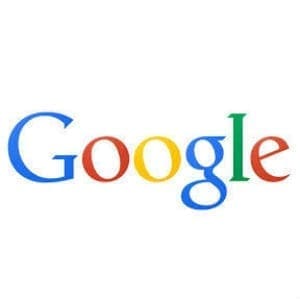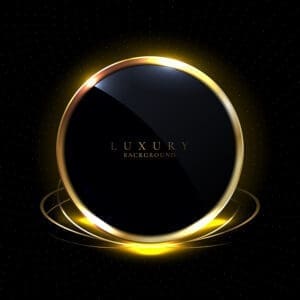
Hotels are on a roll when it comes to creating new hotel brands in a bid to connect with customers and owners. So, what does it take for a brand to be truly successful? Han Zantingh, MD Asia, Brainjuicer presented their views at the No Vacancy Conference held in Sydney recently.
In a nutshell, BrainJuicer is all about expanding behaviour – consumer behaviour. We look at how people make decisions. What we think is happening is a new way of looking at behaviour – a new framework of interpreting behaviour.
As marketers we try and change behaviour
Marketing and sales is all about influencing behaviour, changing behaviour, as hotel brand owners we try and make consumers more loyal to us, to go to new places, to go to other places, so we’re always trying to change behaviour and that’s not actually an easy thing to do because people don’t like change, so you need to really understand why they’re behaving in a certain way before you can really start to change anything.
The way a lot of people have been thinking about marketing is this model here – the current model is left brain and right brain. I’m sure you’ve seen this before. Some people are more left brain and some people are more right brain. You have the creative people who you can’t really get in front of clients and you have the account handlers, the commercial people, the money people and never the twain shall meet.
Well, we think that model doesn’t really work. There’s two things wrong with it, firstly you suppose that people are half and half, left and right – well that’s not true. And the second is that you can only be one of two – that’s also not true.

System One and System Two
We call it System One and System Two. It’s all based on the work of Daniel Kahneman, who wrote a book called Thinking Fast and Slow and it gives an indication of the two parts of our brain. We have the fast thinking part to our brain and the slow thinking part. So not left and right but, fast and slow.
His philosophy is that most of the decisions that we make are based on our emotional brain, our intuitive brain. So thinking is overrated and therefore marketing to rational thought may not be the right way to go – or not the only way to go. Kahneman’s idea is that we have two parts to our brain – we have System One brain and System Two brain. System One is our original brain. We share it with all other animals on the planet. In evolutionary terms it’s about a million years old and it’s the intuitive part of the brain – it’s very responsive, it’s very fast, it’s the super computer – a few thousand bits of computer power. It’s very good at reacting spontaneously because sometimes you don’t even think about it and actions just happen.
Feel, act, think
Suppose something happens to you, you have an emotional reaction, then you do something about it and then you act and then you think about what happened. The thinking about what happened is the second part of our brain, much newer – only about 100,000 years old – which is the rational part of the brain.
Our System Two brain is a little bit like a 1980’s Atari game computer – it’s clunky, it’s slow, it’s painful to use, so we avoid using it wherever we can. We don’t think as much as we think we do. We feel our way through life.

We feel our way through life
So what we’ve tried to do is to make sense of this new way of looking at the world – behavioural economics. By looking at three lenses that can explain behaviour. We talk about the environment, social factors and personal factors. The environment is everything that’s around us that influences our behaviour – it’s all about framing who’s around us, what’s around us and the choices and how they’re presented to us.
That has massive implications for pricing for instance. Adding certain price points can make more reasonable price points seem very cheap just by adding it. That’s why there’s always a very expensive wine on the menu – no-one’s expected to buy it but its there to provide a frame of reference.
Social is the same – we are social animals. We love to look at other people and do what they do. It makes us feel safe and it makes us feel comfortable. So how you feel makes all the difference. Many marketers try to look at human decision-making through all sorts of intermediate measures and I’m sure that you’ve seen some of these before – cut through, persuasion, propensity to buy, awareness indexes – these things have taken on a life of their own. We attach huge meaning to them. You know, this ad scored so much on the persuasion index etc but in themselves, these things mean very little. They’re intermediate measures that we’ve attached a lot of meaning to.
So what we think we need to look at mainly is emotion. How does something make people feel? What is the emotional response that you’re kind of eliciting in someone’s brain?
You need to make sure you’re communicating on the right emotional wavelength. So what does that mean for naming then? Basically two things matter when it comes to marketing success.

Fame multiplied by availability
So let’s tackle availability first. Obviously, you need to be where people are – you need to be in the right locations. But you also need to be there in terms of mental availability.
But more importantly, it’s very much about driving fame, because if you’re not famous, you won’t cut through on that emotional level. People won’t find you very relevant or interesting. So how do we drive that fame then because contrary to what many marketers believe, actually our consumers don’t care as much as we think they do. It can be quite difficult to accept that your hotel brand isn’t what consumers think about every moment of the day. So you need to make it more relevant, you need to make it more fun. And you need to try and get people on the same wavelength.
Fun, fast and easy
Something else that we learn from behavioural economics, is that people want their lives to be these three things – they want their lives to be fun, fast and easy. And that’s important when it comes to naming and hotel brand awareness. You need to make sure that the hotel brand you come up with – the proposition you develop – fits those three things. It has to be easy to understand, it has to be fun and it gives a point of difference.
So what does that mean? It means that the core thing to think about is not necessarily differentiation but it’s about being distinctive. It’s about being different in a way that’s easy to notice. That’s really what matters when it comes to branding – you need to be easily decode-able, easy to remember, and easy to understand.
So when it comes to branding – we used to brand our cows and it was all about being able to see which cows were yours and which cows were mine – so it was about being distinctive. Easy to de-code.
The 6 brand types
There are roughly six ways of naming anything.
- Founder: The first one is founder-related and there’s a lot of brands like that in any industry but specifically in the hotel industry. Many hotel brands seem to be named after their owner or founder, Hilton is just one example of this.
- Borrowed Interest: Four Seasons being an example of that.
- Origins: BMW being an example and Taj an example of in the hotel industry.
- Descriptive Brands: such as Holiday Inn – somewhere you go to have a holiday.
- Fabricated: W may be an example. These are brands that don’t mean anything of themselves but they have acquired meaning for them.
- Acronym: Appear to be rare in the hotel industry.
But basically, it doesn’t really matter from a system perspective which one of these you take as long as you can generate happiness for those people who are thinking about it.
There are seven core human emotions and the one that we’re aiming to shoot for is either surprise or happiness. We want people to feel happy about things. Interestingly, there are five negative emotions. We’re very negative when it comes to our emotions and that’s because they keep us alive a lot better – negative emotions protect you a lot better than positive ones. Fear makes you run faster, anger makes you fight better and so on and so forth.

Avoid neutral – feel nothing means do nothing
The one that you want to avoid at all costs is neutral – if you can’t make people feel anything about your brand, they probably won’t buy it. Feel nothing means do nothing. It doesn’t really matter where your name comes from, how you’ve come up with it – as long as you can make it mean something to people on an emotional level.
Here is an ad for a UK telecommunications company. Interestingly, the brief for this ad was “make my brand famous.” would you be brave enough to brief an agency like that? We have a tendency to talk too much – the key thing you want to do is to make your brand famous.
So you don’t have to tell anybody anything – they’ll tell their own story about your brand once they like you.
For more information about Brainjuicer go to www.brainjuicer.com
For more information on No Vacancy, go to www.traveltrends.biz




















